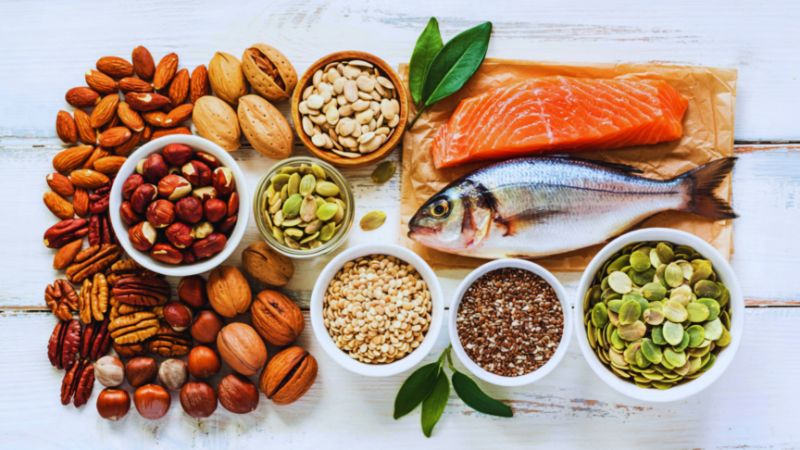Screenwriting is a marathon, not a sprint. The stereotype is for there to be numerous coffee stains on scripts with one film jokingly adding the coffee stain as a stamp to prove it’d be read.
It demands hours of sustained concentration, a relentless flow of creativity, and the mental resilience to push through endless revisions and inevitable writer’s block. While much of the focus is on discipline and story structure, an often-overlooked secret weapon lies in the kitchen: the writer’s diet.

It’s not about following a restrictive fad; it’s about providing your brain, your most critical creative tool, with the stable, high-quality fuel it needs to perform at its peak.
The Problem: The Sugar Crash Script
The stereotypical writer’s “diet” often consists of endless coffee, sugary snacks for quick energy bursts, and a reliance on quick, processed meals to save time. This is a recipe for disaster. The immediate sugar rush is followed by a brutal crash, leaving the screenwriter unfocused, irritable, and prone to “brain fog”—the enemy of a clean, well-paced script.
The brain’s preferred fuel is glucose, but the source of that glucose is everything. Fast-releasing sugars cause rapid spikes and drops in blood sugar, mimicking a rollercoaster that no writer wants to ride. The goal for sustained screenwriting is to flatten this curve.
The Solution: A Stable Supply of Brain Food
The best diet for a screenwriter is one that champions stability, antioxidants, and essential fats. Think of it as a low-glycemic, anti-inflammatory regime designed to maintain a consistent energy supply and protect the delicate machinery of thought.
1. The Power of Protein and Healthy Fats
Protein’s building blocks, amino acids, are essential for creating neurotransmitters like dopamine and serotonin, which regulate mood, motivation, and mental performance. Pairing protein with healthy unsaturated fats provides sustained satiety and feeds the brain’s physical structure.
The Go-To Fuels:
Fatty Fish (Salmon, Tuna, Sardines): Rich in Omega-3 fatty acids, especially DHA, which are crucial for brain cell structure, memory, and reducing inflammation. They are arguably the most important brain food.
Eggs: Packed with protein and Choline, a nutrient vital for memory and quick signal-firing between neurons.
Nuts and Seeds (Walnuts, Almonds, Chia): Excellent sources of healthy fats, protein, and Vitamin E, which protects against oxidative stress. Walnuts, in particular, contain the plant-based Omega-3, ALA.
Avocados and Olive Oil: Monounsaturated fats that support healthy blood flow to the brain, improving cognitive function.
2. Complex Carbs: The Long-Burning Logs
To maintain that steady glucose level, screenwriters should favor complex carbohydrates—those with a low glycemic index and high fiber content. They release sugar slowly into the bloodstream, preventing the dreaded afternoon crash.
The Sustained Energy Sources:
Whole Grains (Oats, Quinoa, Brown Rice): Provide a steady stream of energy and B vitamins, which are necessary for overall energy production and brain health.
Beans and Legumes: A great mix of complex carbs, protein, and fiber.
3. Antioxidants: Protecting the Creative Circuitry
The brain consumes a huge amount of oxygen and is susceptible to oxidative stress, which can lead to fatigue and cognitive decline. Antioxidant-rich foods act as protective agents, keeping the creative circuits clean and firing efficiently.
The Brain’s Bodyguards:
Berries (Blueberries, Strawberries): Loaded with flavonoids, antioxidants that have been shown to improve memory and protect against age-related cognitive decline.
Leafy Greens (Kale, Spinach, Broccoli): Rich in Vitamin K, folate, and other nutrients linked to improved memory and reduced brain aging.
Dark Chocolate (70%+ Cacao): Contains flavonoids and a small amount of caffeine, which can boost blood flow to the brain and encourage the release of “feel-good” endorphins—a worthy reward for finishing a scene.
The Writer’s ‘Ritual’ Meal Plan
The most effective diet is as much about when and how you eat as it is what you eat.
A Stable Start (Breakfast): Begin the writing day with protein and complex carbs. Think oatmeal with walnuts and berries, or avocado and egg on whole-grain toast. This primes the brain for a productive morning session.
The Hydration Imperative: Dehydration is a swift killer of concentration. Many successful writers list consistent water intake as key to productivity. Keep a large bottle or carafe of water on your desk and sip continually. Green tea is another excellent option, offering a gentler dose of caffeine plus the cognitive-enhancing amino acid L-Theanine.
The Mindful Snack: When the mid-afternoon slump hits, avoid the vending machine. Pre-portion healthy, brain-boosting snacks to maintain energy: a handful of almonds, a piece of dark chocolate, or a hard-boiled egg.
Lunch for Endurance: A light lunch rich in protein and vegetables, like a salmon salad, prevents the “food coma” that heavy, high-carb meals cause. You need to be ready to work immediately after your break.
The successful screenwriter understands that discipline extends beyond the page. By treating your diet as an essential tool—a form of self-care that directly impacts your output—you move past the cycle of sugar highs and lows, setting a solid foundation for the enduring, creative focus required to write a truly great script. The next time you sit down to write, remember: your screenplay is only as sharp as the fuel you feed your brain.
